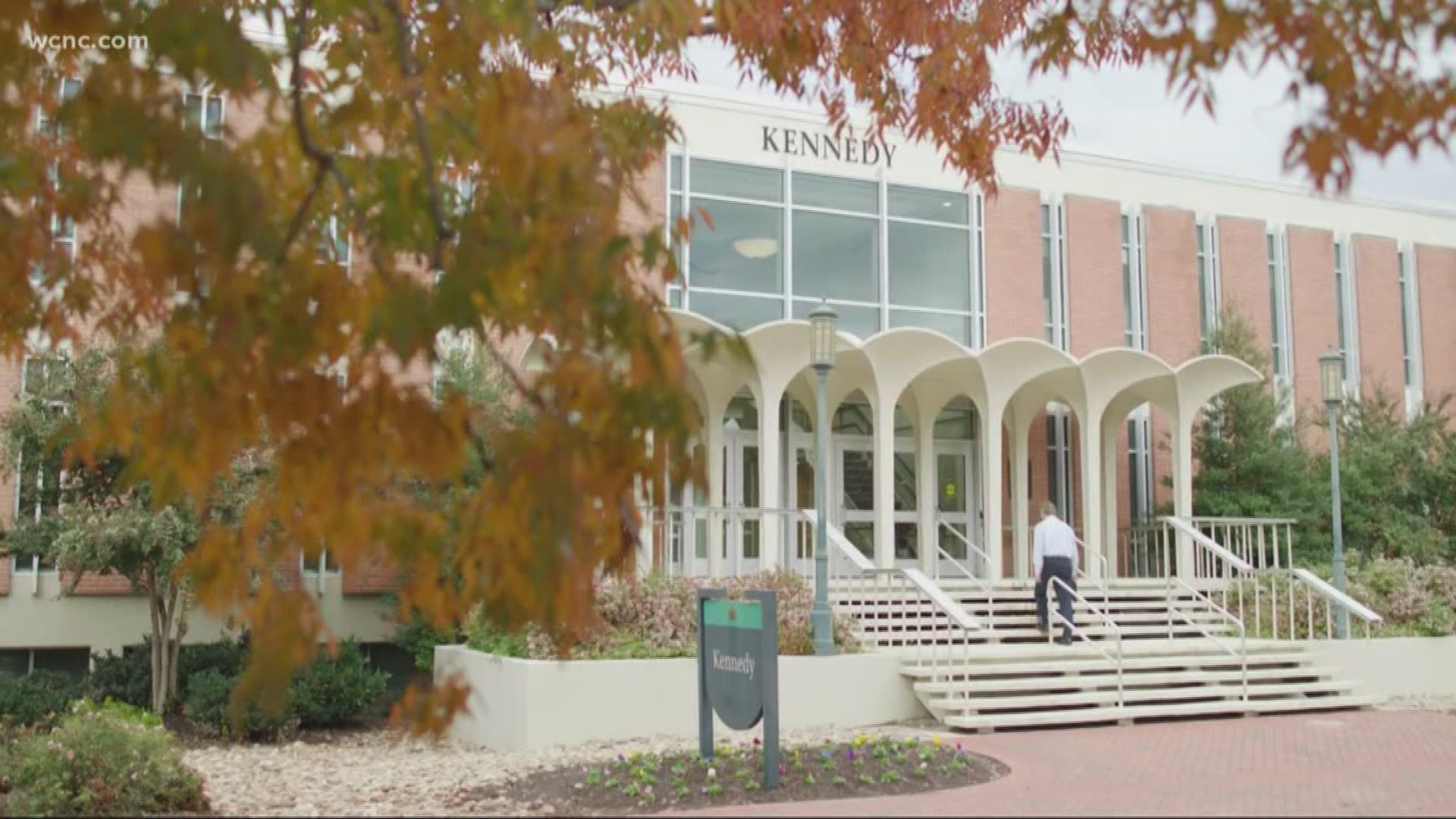CHARLOTTE, N.C. — When a gunman terrorized UNC Charlotte in April, an NBC Charlotte investigation found panicked students, faculty, and staff couldn't lock hundreds of classroom doors.
UNC Charlotte administrators said roughly half of the classroom doors on campus were not designed to lock from the inside, and work orders show some of the doors that do have interior locks didn't work either.
"Since April 30, we've done a pretty thorough review of all the doors on campus," Associate Vice Chancellor for Safety and Security John Bogdan said. "All the doors lock, not all of them can be locked manually from the inside. About half right now is where we're at."
The 911 calls from the day of the shooting show the fear of people inside some of those rooms.
"These doors don't lock," a caller said. "The lights are out. The doors don't lock, but we have them blockaded."
Another caller said there were 150 students in the corner, but it was unsure if the doors would lock.
Thankfully, the gunman never went into any of those classrooms or the roughly 700 others just like them that can't be locked.
Bogdan said UNC Charlotte is now working on a long-term solution to make sure no one is ever put in that situation again.
"Our long-term plan is to try and get to some sort of locking device or barricade device for every door," he said.
In the meantime, administrators are creating lockdown kits that will keep people safe and doors secure in the short-term. That would also help in instances where doors don't function properly. University work orders show multiple requests for doors to be fixed following the lockdown, some of them failing to lock properly.
UNC Charlotte isn't the first local campus to discover a security lapse related to doors. After a 2018 lockdown, Wingate University realized it had the same problem, so it bought a lockdown device for every room as part of $15,000 worth of improvements.
"We had an active event that took place across Highway 74 from our entrance on February 26, 2018," Vice President of Operations Scott Hunsucker said. "That incident caused us to activate a campus lockdown and the directions to shelter-in-place. Following the incident, we learned of several issues that didn't go as planned. The main item was that we had no means to lock our classroom doors to shelter our students and faculty/staff. I contacted Nightlock Door Security Devices and a week later, during spring break, our maintenance department installed the Lockdown 1 device in each of our classrooms, conference rooms and meeting areas across campus. This is one level of our multi-tiered system to handle a lockdown situation. We will continue to refine and implement new procedures as we learn best practices."
Central Piedmont Community College spent more than $160,000 replacing its classroom locks with deadbolts in 2017 and 2018.
"During 2017 and 2018, Central Piedmont replaced classroom door locks college-wide with ones that are locked easily from the inside," Communications, Marketing, and Public Relations Vice President Jeff Lowrance said. "This effort included all six campuses. All new construction project plans specify the thumb latch deadbolts be installed from the start."
Back at UNC Charlotte, the university plans to spend less than $20,000 on its temporary lockdown kits. The goal is to place two items inside every classroom by the end of the semester.
"Two simple devices: A Wedge-It and a cut piece of fire hose," Bogdan said.
Which tool people will need in a lockdown will depend on the type of door they're securing, but both would serve the same purpose of keeping intruders out and the people inside safe.
The kits are on top of extra active shooter response training offered to students, faculty, and staff. The university has also added more security at large events, including metal detectors, a new bag policy, and more law enforcement.
Bogdan said UNC Charlotte also learned of one other failure on April 30. When there's a lockdown, and all outside doors are secured with the push of a button, no one can get in, not even first responders.
He said that did not delay the response earlier this year, police just busted down the doors, but UNC Charlotte has fixed the problem moving forward by giving first responders an override option.
"You're always looking for a way to improve," Bogdan said.
UNC Charlotte is in the midst of a six-month external review, looking for other ways to improve upon what most considered a thorough response to an otherwise terrible day on campus.
Bogdan said the National Police Foundation and International Association of Campus Law Enforcement Administrators are in charge of that review, which will include periodic visits to campus.

